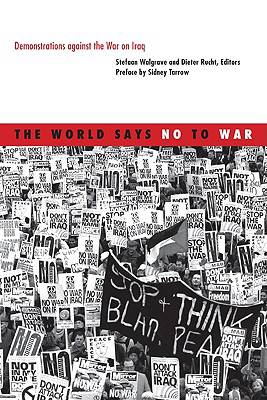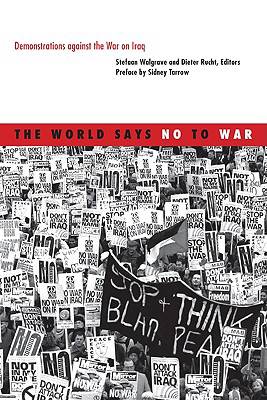
- Afhalen na 1 uur in een winkel met voorraad
- Gratis thuislevering in België vanaf € 30
- Ruim aanbod met 7 miljoen producten
- Afhalen na 1 uur in een winkel met voorraad
- Gratis thuislevering in België vanaf € 30
- Ruim aanbod met 7 miljoen producten
Zoeken
The World Says No to War
Demonstrations against the War on Iraq
€ 47,45
Omschrijving
On February 15, 2003, the largest one-day protest in human history took place as millions of people in hundreds of cities marched in the streets, rallying against the imminent invasion of Iraq. This was activism on an unprecedented scale. The World Says No to War strives to understand who spoke out, why they did, and how so many people were mobilized for a global demonstration. Using surveys collected by researchers from eight countries-Belgium, Britain, Germany, Italy, the Netherlands, Spain, Switzerland, and the United States-The World Says No to War analyzes how the new tools of the Internet were combined with more conventional means of mobilization to rally millions, many with little experience in activism, around common goals and against common targets. Contributors: W. Lance Bennett, U of Washington; Michelle Beyeler, U Bern; Christian Breunig, U of Toronto; Mario Diani, U of Trento; Terri E. Givens, U of Texas, Austin; Bert Klandermans, Free U Amsterdam; Donatella della Porta, European U Institute; Wolfgang Rüdig, U of Strathclyde; Sidney Tarrow, Cornell U; Peter Van Aelst, U of Antwerp.
Specificaties
Betrokkenen
- Uitgeverij:
Inhoud
- Aantal bladzijden:
- 312
- Taal:
- Engels
- Reeks:
- Reeksnummer:
- nr. 33
Eigenschappen
- Productcode (EAN):
- 9780816650965
- Verschijningsdatum:
- 9/04/2010
- Uitvoering:
- Paperback
- Formaat:
- Trade paperback (VS)
- Afmetingen:
- 147 mm x 226 mm
- Gewicht:
- 453 g

Alleen bij Standaard Boekhandel
Beoordelingen
We publiceren alleen reviews die voldoen aan de voorwaarden voor reviews. Bekijk onze voorwaarden voor reviews.










